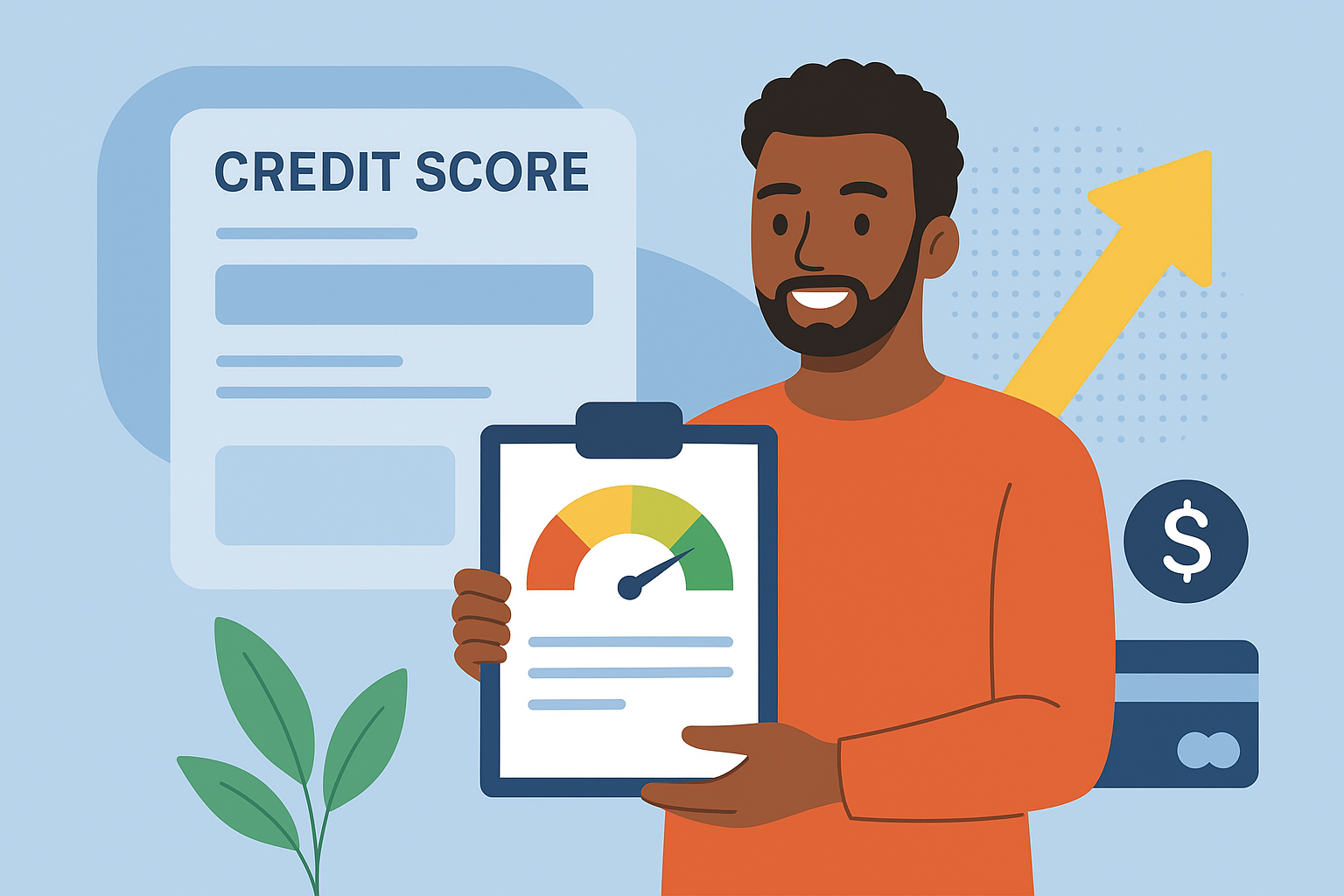CREDIT SCORE
Responsible Credit Card Use: Smart Financial Habits
Using a credit card responsibly can play a major role in building long-term financial stability....
Learn More


![]() October 31, 2025
October 31, 2025
Your credit score is more than a number—it’s your financial reputation. Whether you check it through Credit Hero Score, Credit Karma, Experian, or another platform, that score represents your reliability as a borrower. It determines whether you’ll qualify for loans, what interest rates you’ll get, and even whether a landlord or employer might see you as trustworthy.
If you’ve ever wondered how to boost your credit score and maintain long-term financial health, this guide will walk you through everything—how credit scores work, what affects them, and practical steps to raise yours using any credit-monitoring tool.
A credit score is a three-digit number, usually ranging from 300 to 850, that indicates your creditworthiness. It’s calculated from your credit history—how you’ve handled credit cards, loans, and payments in the past. Lenders use it to decide how risky it might be to lend you money.
The two main scoring systems are:
Each system uses slightly different formulas but looks at the same key areas of your financial behavior.
Platforms such as Credit Hero Score, Credit Karma, Experian CreditWorks, and Credit Sesame let you view and monitor your credit reports and scores. They typically offer:
It’s important to know that the score you see on these platforms may differ slightly from what lenders use—but it still provides an accurate view of your credit health and progress.
A strong credit score opens the door to better financial opportunities:
A low score, on the other hand, can make borrowing more expensive or even lead to loan denials.
Understanding what shapes your credit score helps you focus your efforts where they matter most. Here’s the breakdown of major factors:
Your record of on-time payments is the single most important factor. Even one missed payment can have a lasting negative impact.
Pro tip: Automate payments or set up reminders so you never miss a due date.
This measures how much of your available credit you’re currently using. Try to keep your utilization under 30% of your total credit limit.
For example, if your combined credit limit is $10,000, try to keep balances below $3,000.
The longer your credit accounts have been open, the better. Older accounts give lenders more insight into your financial habits.
A healthy variety of credit—like credit cards, auto loans, and mortgages—shows you can manage different kinds of debt responsibly.
Each time you apply for new credit, a “hard inquiry” appears on your report. Too many in a short period can lower your score temporarily.
These strategies apply no matter which credit-monitoring service you use:
Payment history makes up the biggest portion of your score. Late or missed payments can stay on your record for up to seven years.
Set up automatic payments or mobile reminders to keep everything on schedule.
High credit utilization can quickly drag your score down. Focus on paying down revolving debts (like credit cards) to improve your ratio.
If you can, pay off balances before your billing statement closes so that a lower amount is reported to the credit bureaus.
If you’ve demonstrated responsible use, request a higher credit limit. This lowers your utilization percentage—just make sure you don’t increase your spending as well.
Mistakes happen. You might find outdated accounts, duplicate loans, or errors that hurt your score.
Platforms like Credit Hero Score, Credit Karma, and Experian all allow you to review and dispute inaccuracies easily.
Closing older accounts shortens your average credit history, which can lower your score. Keep them open, even if you use them sparingly.
Each credit application triggers a hard inquiry. Applying for multiple accounts in a short period can make you appear desperate for credit.
Having both revolving credit (like cards) and installment loans (like car loans or student loans) shows lenders you can handle varied credit responsibly.
If you’re rebuilding or establishing credit, a secured card—where you make a deposit as collateral—can help you build a positive payment history.
Most banks and credit apps let you schedule alerts for due dates. Staying organized ensures you never risk late payments.
Focusing on high-interest balances first saves money and reduces total debt faster—a smart way to boost your score efficiently.
If you’re struggling to keep up, call your creditors before missing payments. They may offer hardship plans or lower interest rates.
Reputable nonprofit credit-counseling agencies can help you create a realistic repayment plan without damaging your score.
Credit utilization is one of the easiest factors to control—and one of the quickest ways to raise your score.
Remember, even if you pay your card in full each month, a high reported balance at the time of billing can still hurt your score—so timing your payments matters.
Since payment history carries the most weight, treat it as your top priority.
Consistency over time is what lenders value most.
The longer you maintain active, well-managed accounts, the stronger your profile becomes.
A healthy mix of credit types shows financial maturity. Having only one type—like multiple credit cards—may limit your potential score growth.
You don’t need to open new accounts just for the sake of diversity, but if you’re planning a major purchase or new loan anyway, doing so responsibly can help strengthen your overall credit profile.
Each new application for credit triggers a hard inquiry, which can drop your score by a few points temporarily.
Smart approach:
Improving your credit score isn’t a one-time task—it’s an ongoing process. These long-term habits help keep your score strong year after year.
A well-planned budget helps you stay on top of bills and prevents unnecessary debt accumulation.
Saving three to six months of expenses protects you from relying on credit during financial setbacks.
Credit-scoring models and financial regulations evolve. Keep learning how updates from FICO or VantageScore may affect you.
Whether through Credit Hero Score, Credit Karma, Experian, or another provider, regular monitoring keeps you aware of changes and potential identity theft.
A perfect score isn’t built overnight. The goal is steady progress and consistent, responsible behavior over time.
Your credit score is one of the most important financial tools you have. Regardless of which platform you use—Credit Hero Score, Credit Karma, Experian, or another—what truly matters is your financial habits.
By paying bills on time, keeping balances low, maintaining older accounts, and monitoring your credit regularly, you’ll steadily build a score that reflects stability, trustworthiness, and financial confidence.
Good credit isn’t just about access to loans—it’s about achieving long-term peace of mind and financial freedom.

Why Customer Experience Drives Retail Growth Today
Feb 19, 2026

Why Smart Security Matters for Modern Businesses?
Feb 18, 2026

Best Offline Apps That Save Data on Prepaid Plans
Feb 13, 2026

Holiday Marketing Ideas That Drive Real Sales Growth
Feb 12, 2026

Business Loan Documents Guide for Telecom Dealers
Feb 10, 2026